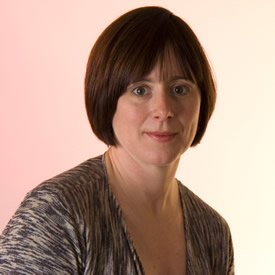Kate Palmer
Country of origin: United Kingdom
Diversification Consultant, Rural Solutions
As a qualified architect I came to the Lancaster MBA with a rather different background to many of my colleagues. Having been practising and involved with running a large commercial practice for many years I was looking for the MBA to help provide an academic framework to support some of the experiential knowledge I had built up.
When I was considering where to take my MBA, I was drawn to the LUMS programme because it offered an opportunity to ‘learn in action’. The programme certainly delivered on this promise in modules such as the New Venture Challenge and Consultancy Challenge where our teams addressed issues for real businesses. The Consultancy Challenge in particular was a real highlight of the year for me, applying the academic, classroom theory to the intricate issues of a local business – learning on your feet!
I also enjoyed the diversity of the programme and the class. The Lancaster MBA is not about creating identikit MBA alumni but building on each individual’s skills and experience towards their own goals.
Devising own project
Having developed my own brief for a summer project via LUMS connections, I was able to liaise with international experts in the field. I wanted to look into the interface between organisational culture and workplace architecture, or how the design of workplaces can either be happier and more productive places to be in, or not!
My research was based mostly on visits to, and analysis of, the London offices of Google and Saatchi & Saatchi, and the headquarters buildings of Arup and Innocent Smoothies. It was quite a labour of love but it won the Programme Director’s prize for best dissertation, and it also resulted in my being joint winner of the Academic Excellence Award which was wonderful – and a very big surprise!
International add-on
After I had finished the Lancaster programme, I took part in the three-month MBA International Study Programme at St Gallen, in north-east Switzerland, one of Lancaster’s partner schools for exchange programmes. This was a supplementary programme after the MBA, offering free education at one of the best business schools in Europe.
It was a great three months – and complemented my Lancaster learning very well as it allowed me to go back over certain material and added some excellent teaching in areas I hadn’t covered at Lancaster, such as corporate governance and European business law.
In January 2011 I started work for a firm of rural diversification consultants called Rural Solutions in a role which combines both my pre-MBA background as an architect and my new-found consultancy skills.
No-one should describe the Lancaster MBA as an easy year but by facing the challenges the programme throws up, you truly discover your own potential. For me this involved unearthing previously undiscovered skills, unleashing a massive appetite for work and getting a great confidence boost. Nothing, I found, is impossible!


